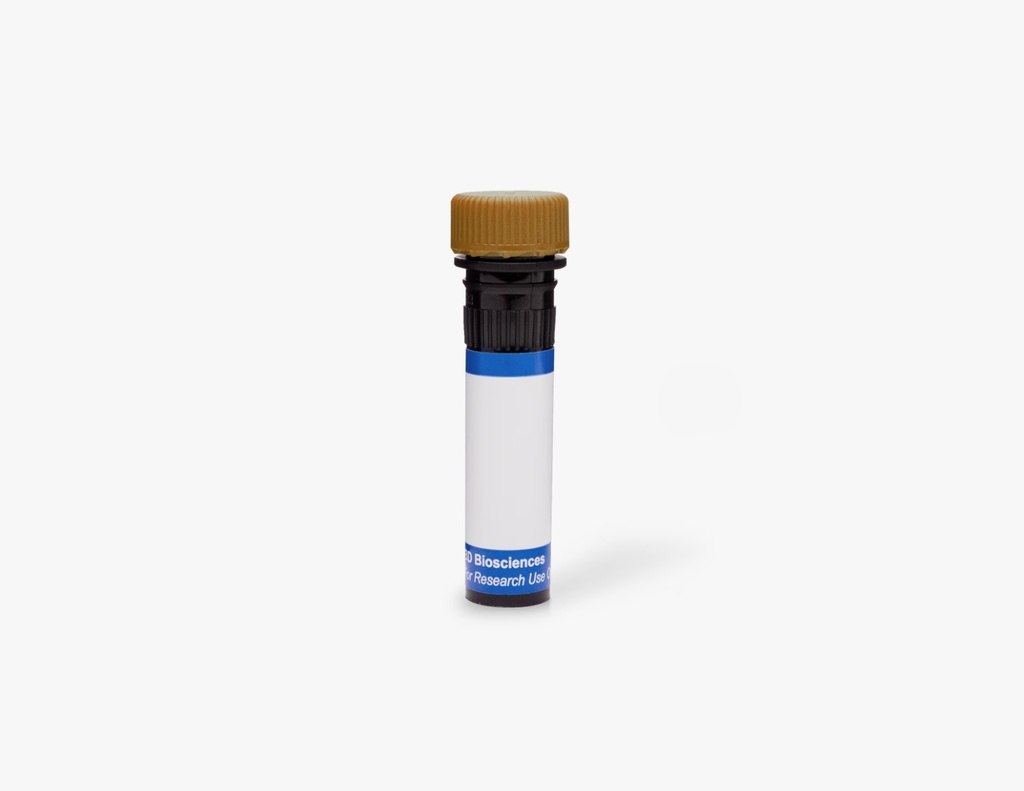BD Pharmingen™ PerCP Mouse Anti-Human CD4, 50 Tests
Catalog No :
CAS Number :
Brand :
In Stock
Specifications:
| Application | Flow Cytometry | ||
| Storage Temperature | 2-8°C | ||
| Product Type | Molecular Biology Reagent | Forms | Liquid |
| Product Brand | BD | ||
| Product Grade | Molecular Biology | ||
Preparation And Storage
Store undiluted at 4°C and protected from prolonged exposure to light. Do not freeze. The monoclonal antibody was purified from tissue culture supernatant or ascites by affinity chromatography. The antibody was conjugated with PerCP under optimum conditions, and unconjugated antibody and free PerCP were removed. Storage of PerCP conjugates in unoptimized diluent is not recommended and may result in loss of signal intensity.
Product Notices
- This reagent has been pre-diluted for use at the recommended Volume per Test. We typically use 1 × 10^6 cells in a 100-µl experimental sample (a test).
- An isotype control should be used at the same concentration as the antibody of interest.
- Caution: Sodium azide yields highly toxic hydrazoic acid under acidic conditions. Dilute azide compounds in running water before discarding to avoid accumulation of potentially explosive deposits in plumbing.
- Source of all serum proteins is from USDA inspected abattoirs located in the United States.
- For fluorochrome spectra and suitable instrument settings, please refer to our Multicolor Flow Cytometry web page at www.bdbiosciences.com/colors.
- PerCP is a photosynthetic accessory pigment from Glenodinium species of dinoflagellates, which is excited by the 488-nm light of an Argon ion laser and fluoresces at 675 nm. Therefore, PerCP-labelled antibodies can be used with FITC- and R-PE–labelled reagents in most single-laser flow cytometers with no significant spectral overlap of PerCP fluorescence with that of FITC or R-PE. PerCP has been reported to undergo significant photobleaching, the magnitude of which increases as laser power is increased or beam focus is narrowed. For third-color flow¬cytometric analysis using ≥25-mW laser power, we recommend PE-Cy5-, PE-Cy7–, or PerCP-Cy5.5-conjugated reagents.




 0
0
